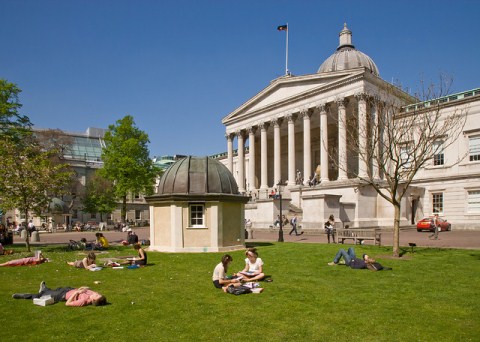The degree Read more [...]
Science and Society
Course Category: Bachelor and Bachelor of Science
-
Focus of Study
This programme aims to produce graduates ready to talk about science and interpret its influences in modern society without committing to a life at the lab bench. Science involves many more people than scientists themselves, and this degree seeks to build policy-makers, communicators, and other observers who can contribute informed views to ongoing debates about sciences direction and impact. This might involve contributing to debates on science funding or ethics; weighing the value of different social priorities; or consulting on the impact of new technologies and new discoveries.
- Courses in science policy and governance focus on the UK, the EU, and the world. They also focus on ethics, historical decision-making processes, and current discussions about future directions in science, medicine, and technology.
- Courses in science communication focus on the complex interactions between scientists and the public. We consider the methods of science journalism, including broadcast and online environments among others.
- Practical courses in public engagement and evaluation build hands-on skills with communication and conversation. You will also develop the skills of evaluating the effectiveness of science communication: what works and what doesn’t?
- Courses in sociology of modern science and technology combine with classic sociological theory and practical field methods to study science as a human activity, shaped by modern society.
Course Description
Study plan
Year 1
Compulsory courses
Fundamentals of Science Communication
History of Modern Science
History of Science: Antiquity to Enlightenment
Investigating Science and Society
Philosophy of Science I
Revealing Science
Science Policy
Sources in History of ScienceYear Two
Compulsory courses
Global Citizenship in Action
Optional courses
Students select options from a wide range of courses offered by the department and more widely across UCL, including:
Philosophy of Science II
Policy Issues in the Life Sciences
Science and Empire
Science and Ethics
Science in the Media
Sociology of Science and TechnologyFinal Year
Compulsory courses
Dissertation
Optional courses
Disease in History
Governing Emerging Technologies
History of Astronomy and Cosmology
History of Medicine
Investigating Contemporary Science
Medical Ethics
Philosophy of Information
Philosophy of Medicine
Philosophy of Natural Science
Science and Film Production
Science in Nineteenth Century London
Science, Art and Philosophy
Science, Politics, and the State in Russia and the Soviet Union
Sleep and Dreaming* Our final-year optional courses vary from year to year to reflect current practice and the latest academic research.
Careers
The programme is designed to allow you to gain understanding of the discipline, and to develop intellectual, practical and transferable skills, such as critical thinking; retrieving, researching and analysing material, time and project management and working effectively both alone and as part of a team.
In this scientific and technological world, this programme provides an excellent foundation for many careers, especially those at the interface of professional science and the wider culture.
Our graduates go on to develop successful careers in the areas of science policy, think tanks, charities, science communication, journalism, education, museums, finance and law. Many also go on to pursue further study.

